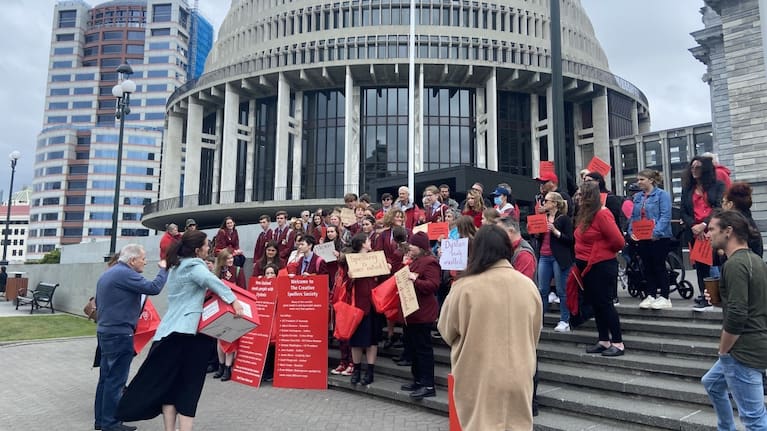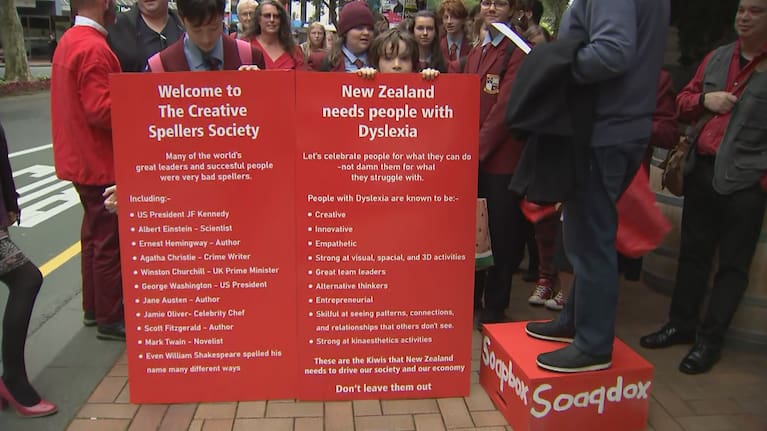New Zealand's approach to dyslexia is ignorant, according to author and dyslexia specialist Mike Styles.
Styles presented a petition to Parliament this afternoon,
Speaking to Breakfast this morning, Styles said dyslexia is often a "silent" condition that goes unnoticed in Aotearoa.
Dyslexia specialist Mike Styles led a march of students to present the petition to Parliament today. (Source: 1News)
"Many people with dyslexia don't know they have it. Ten per cent of New Zealand children don't get an education that meets their needs.
"Children with dyslexia grow up to be adults with dyslexia and often people with dyslexia are short-changed in the world of work."
He said this is not only an equity issue but also a productivity issue. The petition is calling on the Government to do something about it.
"What we're asking for is for there to be a public education programme about dyslexia.

"We're asking for economic analysis of what the cost to New Zealand is - now that's a cost in education, it's a cost in mental health, it's a cost in the prison population," Styles said.
"We've got 50% of the prison population in this country show up as positive for dyslexia. That's a disgusting statistic."
Styles said for a long time, the Ministry of Education ignored dyslexia. "It's really only since 2007 that the ministry accepted that it's a thing."
He said the country is in a state where dyslexia is "invisible".

"Most people with dyslexia don't like to tell people they have it, many people don't know they have it and so that's what contributes to the invisibility of it, and that's the ground for the petition."
Asked what he hopes the outcome of presenting the petition will be, Styles said he wants to see a legislative reference to dyslexia.
"I'd like some legislative framework. It would be a really good place to start because as a nation we don't know what we don't know, and government agencies, for example like MBIE, should be all over this because it impacts on the nations productivity."
New Zealand is lagging behind other countries like the UK and Singapore who have legislations that cover and include dyslexia.
National MP Nicola Willis accepted the petition at Parliament this afternoon, thanking those involved for drawing attention to the issue.
"Let's start by saying here's to the people whose brains work differently, let's celebrate that and have an education system that allows everyone succeed and contribute, no matter how their brain learns."


















SHARE ME